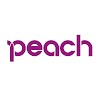June 15, 2018 - Total Access Communication Public Company Limited, or dtac, has not submitted an application for spectrum licensing for telecommunications service in the frequency band of 1800 MHz to the Office of National Broadcasting and Telecommunications Commission (NBTC).
Mr. Lars Norling, CEO of Total Access Communication PLC. or dtac, said: “dtac has considered the auction carefully and concluded that dtaccurrently has enough high-band spectrum to handle the growth of data services. Moreover, the auction conditions did not allow for long-term value creation for our customers and shareholder. As always, dtac will continue to ensure it holds enough spectrum to serve the growing needs of its customers. And we will take all necessary preparatory measures to ensure that no customer is adversely impacted by the concession expiry.”
DTAC HAS AMPLE HIGH-SPECTRUM HOLDINGS
dtac holds 2x15 MHz of capacity on 2100 MHz and recently gained access to a block of 60 MHz on 2300 MHz, Thailand’s widest single block of spectrum. Allowing for the loss 1800 MHz after the remedy period, this constitutes a net gain of 10 MHz in terms of high-band holdings.
As the 2300 MHz spectrum operates on 4G TDD, its benefits are even greater on download capacity, which is increasingly critical given the changing behaviors of Thai consumers who now stream several hours of video per day
Even without 1800 MHz and 850 MHz, dtac has more download capacity per customer than its competitors (dtac: 2.75 MHz per million subscribers, competitors: 1.37 MHz and 1.99 MHz). dtac’s customers will therefore not be affected by the loss of 1800 MHz.
To bolster its network, dtac is also rolling out new cell sites faster than ever in its history. It is adding about 4,000 3G/4G 2100 MHz sites per year in 2017-2018, double the rollout speed in previous years. In addition, dtac committed to adding a minimum 4,000 dtac TURBO (4G TDD) sites in 2018 as per its agreement with TOT. In fact, dtac is aiming for up to 7,000 dtac TURBO sites by year-end.
TELCOS NEED LOW-BAND SPECTRUM
In contrast with Thailand’s high-band spectrum availability, dtac underscored the pressing need to make more low-band spectrum available for telecommunications, ensuring network quality for those outside of dense urban areas. Low-band signals allow the furthest coverage distances and therefore greater access to mobile connectivity, reaching rural populations where the high-density networks needed for high-band spectrum would be unsustainable. Currently, there is no roadmap for low-band spectrum availability despite keen interest from all operators.
Thailand is also an extreme outlier when it comes to spectrum auction prices. Combined with large spectrum blocks and the N-1 rule, Thailand’s spectrum auctions have led to severe spectrum scarcity and adverse effects on consumers. Compared to some of their regional neighbors, Thais pay more for their mobile internet connections while getting slower speeds. Ultimately, these conditions can also lead to inadequate infrastructure development and lasting damage to Thailand’s digital economy.
ENSURING UNINTERRUPTED SERVICES
In the meantime, ensuring uninterrupted mobile services is a shared responsibility of the NBTC, the spectrum owner and the service provider. To secure a smooth transition for all its customers, dtac submitted a joint consumer protection plan with CAT on June 7, 2018, for temporary provision of services in the 850 MHz and 1800 MHz bands.
This joint plan is aimed at ensuring uninterrupted services and follows the practice by other operators in the past. The three previous remedy periods in Thailand lasted 9 to 26 months and they ended on the first day of operation of the new licensee. dtac is therefore adamant that its customers should be granted the same rights as those of other operators, as per NBTC regulations: 1800 MHz should be granted remedy until the first day of operation of the winning bidder; and as 850 MHz has not be auctioned, it should be granted remedy until there is a new licensee ready to operate it.
Together with dtac’s active efforts to migrate its 2G customers and aggressive network rollout on 2100 MHz and 2300 MHz, these measures offer protection to customers on every single band currently operated by dtac—2G, 3G and 4G—and will ensure continuous service without any risk of SIM “blackout.”
DTAC IS BUILDING THE BEST DATA NETWORK
Mr. Prathet Tankuranun, Chief Technology Officer, dtac, said: “dtac is fully committed to building the best data network in Thailand. We are investing 4.51 billion baht per year to operate 2300 MHz in partnership with TOT and will invest a further 15-18 billion baht in building our 2100 and 2300 MHz network. Thanks to our strategic partnership with TOT, we can explore new business opportunities like fixed wireless broadband. And our partnership with CAT will also allow us to keep operating the towers that are under the concession ending Sep 15, 2018. This will ensure continuous service for our customers and the best experience possible.”
dtac’s network also holds several technological firsts, making it the most advanced in Thailand. It already operates on virtual cores which permit the rapid launch of innovative telecommunications solutions and a much greater flexibility in responding to changing consumer needs. dtac also uses cutting-edge big data analytics to roll out new cell sites with much greater precision and efficacy than in the past. This August, dtac will be the first to commercially operate 5G-ready massive MIMO antennas in Thailand.
“Our customers can rest assured they will have service continuity. We have the most high-band spectrum and are rapidly building the best data network in Thailand, not just for today but also for tomorrow. What all telecommunications operators now want is a clear roadmap for low-band spectrum, to keep up with Thai data consumption both in urban centers and across the whole country,” said Mr. Norling.





















